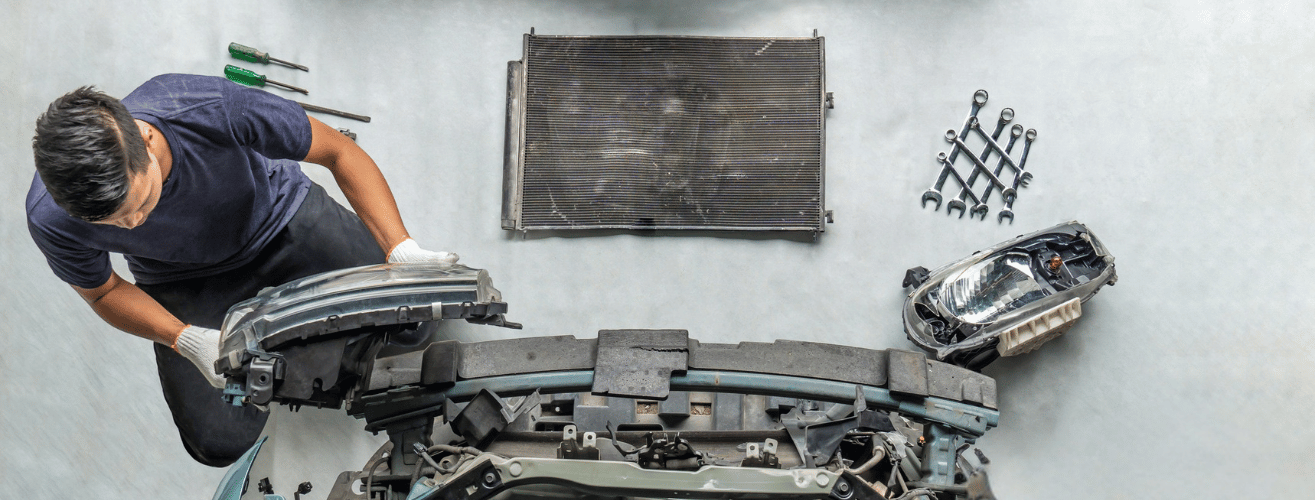Managing a fleet is a constant balancing act.
But juggling the same problems every day, means you’re not solving them, you’re just resetting the clock. Different day, same issues, no real progress.
You can automate approvals, lean on AI-powered tools, and set up dashboards for every step of the process. But at some point, a human has to make a judgment call: who actually touches your vehicles? That decision determines how fast you’re back on the road and how much you’ll pay to get there.
And here’s the truth: not all repair shops are good.
A polished lobby doesn’t mean precision under the hood.
Some of the best-performing shops don’t have spotless waiting rooms or Instagram-worthy facades. They’re too busy solving real problems. In this industry, certifications and shiny equipment matter, but experience always wins. The shops that consistently deliver results are the ones that have pulled engines apart and rebuilt them, diagnosed a stubborn issue without waiting for a scanner, and know exactly when to repair instead of replace.
The best shops don’t just run diagnostics: they can hear a problem and know exactly what’s wrong.
What’s Really Happening Behind the Shop Door
Talk to shops across the country and a pattern emerges: this isn’t a simple business anymore.
Skilled labor is in short supply as experienced technicians retire and younger talent gravitates toward large chains that can afford higher pay and better benefits. Vehicles are getting more complex, too, thanks to OEM-controlled software, costly licenses, and evolving repair procedures. For independent shops, that means juggling expensive equipment, shrinking margins, and a constant fight to stay competitive.
Then there’s the EV hype. Everyone’s talking about certifications, but the reality is volume remains low for most fleets and independent repair shops. For many, investing tens of thousands of dollars in new tools for work that may never materialize simply doesn’t make sense.
“Be strategic with where you invest. Focus on your core business and make sure you’re rock solid at what you do today.” Khaled Ramzi, VP of field Operations at ServiceUp
Transparency has become another defining factor. Today’s customers and carriers expect Amazon-style updates. They want to know what’s happening, when it’s happening, and why it’s happening. Shops that document their work with photos, detailed justifications, and clear communication move approvals faster and deliver better outcomes. Shops that don’t? They lose business.
Why Street-Smart Beats Book-Smart
In the world of vehicle repair, there’s “book-smart” and there’s “street-smart.”
- Book-smart gets you certifications, procedures, and software.
- Street-smart gets your vehicles back on the road.
The highest-performing shops blend both, but when things get messy, when approvals are delayed, parts are on backorder, or a carrier is pushing back: street-smart wins every time.
It’s the technician who’s seen failure before and knows exactly how to handle it. It’s the advisor who anticipates what documentation a carrier needs before they even ask. The best shops anticipate delays and stock critical parts before you even need them. These are the little things that separate good shops from great ones.
The New Reality of Repair Decisions
Choosing a repair shop isn’t about shiny floors or the size of the waiting room. It’s about how they operate when nobody’s watching.
Do they handle your vehicles with the same care they’d give their own? Do they communicate openly and often? Are they scrappy enough to source hard-to-find parts when the supply chain tightens? And are they buttoned up enough to deliver vehicles clean, sensors plugged, and QC verified, every single time?
It’s also about understanding the stakes. A single missed approval can cascade into wasted days. Shops pull your vehicle out of a bay, move another job in, and suddenly what should have been a two-day repair stretches into a week. The best shops understand this. They document quickly, push for fast responses, and keep your vehicles in motion.
Why ServiceUp Has Already Done the Vetting
Here’s the thing: you can run this checklist yourself.
You can interview shops, review processes, and hope the one you choose holds up under pressure. Or you can work with a network that’s already been vetted, tested, and proven at scale.
At ServiceUp, “vetted repair network” isn’t a buzzword, it’s a process. We personally onboard and train every shop, making sure they meet strict standards for documentation, transparency, and delivery. We evaluate their cycle times, their communication habits, and their ability to handle complex repairs. And because we work with thousands of vehicles nationwide, we know exactly which shop to trust with which task, which fleet, and which car.
We also empower independent shops, the backbone of the repair industry, to compete with larger chains. By driving volume their way and providing tools that make them more efficient, we help them deliver better service while helping fleets reduce downtime. It’s a win-win.
The Bottom Line
Fleet managers don’t have time to gamble on unknowns. You need shops that are experienced, transparent, and consistent. You need partners who can navigate insurance friction, source hard-to-find parts, and deliver vehicles right the first time. And if you don’t want to spend your week auditing shops, chasing estimates, and managing approvals, ServiceUp has already done the heavy lifting.
We’ve built a vetted repair network designed for one thing: keeping your fleet moving.
Because downtime costs more than money: It costs momentum.



.png)

.png)

